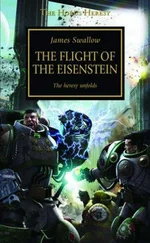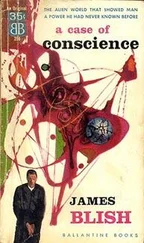James Blish - Cities in Flight
Здесь есть возможность читать онлайн «James Blish - Cities in Flight» весь текст электронной книги совершенно бесплатно (целиком полную версию без сокращений). В некоторых случаях можно слушать аудио, скачать через торрент в формате fb2 и присутствует краткое содержание. Жанр: Фантастика и фэнтези, на английском языке. Описание произведения, (предисловие) а так же отзывы посетителей доступны на портале библиотеки ЛибКат.
- Название:Cities in Flight
- Автор:
- Жанр:
- Год:неизвестен
- ISBN:нет данных
- Рейтинг книги:4 / 5. Голосов: 1
-
Избранное:Добавить в избранное
- Отзывы:
-
Ваша оценка:
- 80
- 1
- 2
- 3
- 4
- 5
Cities in Flight: краткое содержание, описание и аннотация
Предлагаем к чтению аннотацию, описание, краткое содержание или предисловие (зависит от того, что написал сам автор книги «Cities in Flight»). Если вы не нашли необходимую информацию о книге — напишите в комментариях, мы постараемся отыскать её.
Cities in Flight — читать онлайн бесплатно полную книгу (весь текст) целиком
Ниже представлен текст книги, разбитый по страницам. Система сохранения места последней прочитанной страницы, позволяет с удобством читать онлайн бесплатно книгу «Cities in Flight», без необходимости каждый раз заново искать на чём Вы остановились. Поставьте закладку, и сможете в любой момент перейти на страницу, на которой закончили чтение.
Интервал:
Закладка:
“It isn’t going anywhere. It’s a bridge to noplace.”
“There aren’t many places on Jupiter,” Dillon said, missing Helmuth’s meaning entirely. “We put the Bridge on an island in the local sea because we needed solid ice we could sink the foundation in. Otherwise, it wouldn’t have mattered where we put it. We could have floated the caissons on the sea itself, if we hadn’t wanted a fixed point from which to measure storm velocities and such things.”
“I know that,” Helmuth said.
“But, Bob, you don’t show any signs of understanding it. Why, for instance, should the Bridge go any place? It isn’t even, properly speaking, a bridge at all. We only call it that because we used some bridge engineering principles in building it. Actually, it’s much more like a traveling crane—an extremely heavy-duty overhead rail line. It isn’t going anywhere because it hasn’t any place interesting to go to, that’s all. We’re extending it to cover as much territory as possible, and to increase its stability, not to span the distance between places. There’s no point to reproaching it because it doesn’t span a real gap—between, say, Dover and Calais. It’s a bridge to knowledge, and that’s far more important. Why can’t you see that?”
“I can see that; that’s what I was talking about,” Helmuth said, trying to control his impatience. “I have at present as much common sense as the average child. What I am trying to point out is that meeting colossalness with colossalness—out here—is a mug’s game. It’s a game Jupiter will always win without the slightest effort. What if the engineers who built the Dover-Calais bridge had been limited to broom-straws for their structural members? They could have got the bridge up somehow, sure, and made it strong enough to carry light traffic on a fair day. But what would you have had left of it after the first winter storm came down the Channel from the North Sea? The whole approach is idiotic!”
“All right,” Dillon said reasonably. “You have a point. Now you’re being reasonable. What better approach have you to suggest? Should we abandon Jupiter entirely because it’s too big for us?”
“No,” Helmuth said. “Or maybe, yes. I don’t know. I don’t have any easy answer. I just know that this one is no answer at all—it’s just a cumbersome evasion.”
Dillon smiled. “You’re depressed, and no wonder. Sleep it off, Bob, if you can—you might even come up with that answer. In the meantime—well, when you stop to think about it, the surface of Jupiter isn’t any more hostile, inherently, than the surface of Jupiter V, except in degree. If you stepped out of this building naked, you’d die just as fast as you would on Jupiter. Try to look at it that way.”
Helmuth, looking forward into another night of dreams, said: “That’s the way I look at it now.”
BOOK TWO
Finally, in semantic aphasia, the full significance of words and phrases is lost. Separately, each word or each detail of a drawing can be understood, but the general significance escapes; an act is executed on command, though the purpose of it is not understood. … A general conception cannot be formulated, but details can be enumerated.
—HENRI PIÉRONWe often think that when we have completed our study of one we know all about two, because ‘two’ is ‘one and one.’ We forget that we have still to make a study of ‘and.’
—A. S. EDDINGTONINTERMEZZO: WASHINGTON
THE REPORT of the investigating sub-committee of the Senate Finance Committee on the Jupiter Project was a massive document, especially so in the mimeographed, uncorrected form in which it had been rushed to Wagoner’s desk. In its printed form—not due for another two weeks—the report would be considerably less bulky, but it would probably be more unreadable. In addition, it would be tempered in spots by the cautious second thoughts of its seven authors; Wagoner needed to see their opinions in the raw “for colleagues only” version.
Not that the printed version would get a much wider circulation. Even the mimeographed document was stamped “Top Secret.” It had been years since anything about the government’s security system had amused Wagoner in the slightest, but he could not repress a wry grin now. Of course the Bridge itself was Top Secret; but had the sub-committee’s report been ready only a little over a year ago, everybody in the country would have heard about it, and selected passages would have been printed in the newspapers. He could think offhand of at least ten opposition senators, and two or three more inside his own party, who had been determined to use the report to prevent his reelection—or any parts of the report that might have been turned to that purpose. Unhappily for them, the report had been still only a third finished when election day had come, and Alaska had sent Wagoner back to Washington by a very comfortable plurality.
And, as he turned the stiff legal-length pages slowly, with the pleasant, smoky odor of duplicator ink rising from them as he turned, it became clear that the report would have made pretty poor campaign material anyhow. Much of it was highly technical and had obviously been written by staff advisers, not by the investigating senators themselves. The public might be impressed by, but it could not read and would not read, such a show of erudition. Besides, it was only a show; nearly all the technical discussions of the Bridge’s problems petered out into meaningless generalities. In most such instances Wagoner was able to put a mental finger on the missing fact, the ignorance or the withholding of which had left the chain of reasoning suspended in mid-air.
Against the actual operation of the Bridge the senators had been able to find nothing of substance to say. Given in advance the fact that the taxpayers had wanted to spend so much money to build a Bridge on Jupiter—which is to say, somebody (Wagoner himself) had decided that for them, without confusing them by bringing the proposition to their attention—then even the opposition senators had had to agree that it had been built as economically as possible and was still being built that way.
Of course, there had been small grafts waiting to be discovered, and the investigators had discovered them. One of the supply-ship captains had been selling cakes of soap to the crew on Ganymede at incredible prices with the co-operation of the store clerk there. But that was nothing more than a bookkeeper’s crime on a project the size of the Bridge. Wagoner a little admired the supply-captain’s ingenuity—or had it been the store clerk’s?—in discovering an item wanted badly enough on Ganymede, and small enough and light enough to be worth smuggling. The men on the Bridge gang banked most of their salaries automatically on Earth without ever seeing them; there was very little worth buying or selling on the moons of Jupiter.
Of major graft, however, there had been no trace. No steel company had sold the Bridge any sub-standard castings, because there was no steel in the Bridge. A Jovian might have made a good thing of selling the Bridge sub-standard Ice IV—but as far as anyone could know there were no Jovians, so the Bridge got its Ice IV for nothing but the cost of cutting it. Wagoner’s office had been very strict about the handling of the lesser contracts—for pre-fabricated moon huts, for supply ferry fuel, for equipment—and had policed not only its own deals, but all the Army Space Service sub-contracts connected with the Bridge.
As for Charity Dillon and his foreman, they were rigidly efficient —partly because it was in their natures to work that way, and partly beacuse of the intensive conditioning they had all been given before being shipped to the Jovian system. There was no waste to be found in anything that they supervised, and if they had occasionally been guilty of bad engineering judgment, no outside engineer would be likely to detect it. The engineering principles by which the Bridge operated did not hold true anywhere but on Jupiter.
Читать дальшеИнтервал:
Закладка:
Похожие книги на «Cities in Flight»
Представляем Вашему вниманию похожие книги на «Cities in Flight» списком для выбора. Мы отобрали схожую по названию и смыслу литературу в надежде предоставить читателям больше вариантов отыскать новые, интересные, ещё непрочитанные произведения.
Обсуждение, отзывы о книге «Cities in Flight» и просто собственные мнения читателей. Оставьте ваши комментарии, напишите, что Вы думаете о произведении, его смысле или главных героях. Укажите что конкретно понравилось, а что нет, и почему Вы так считаете.












